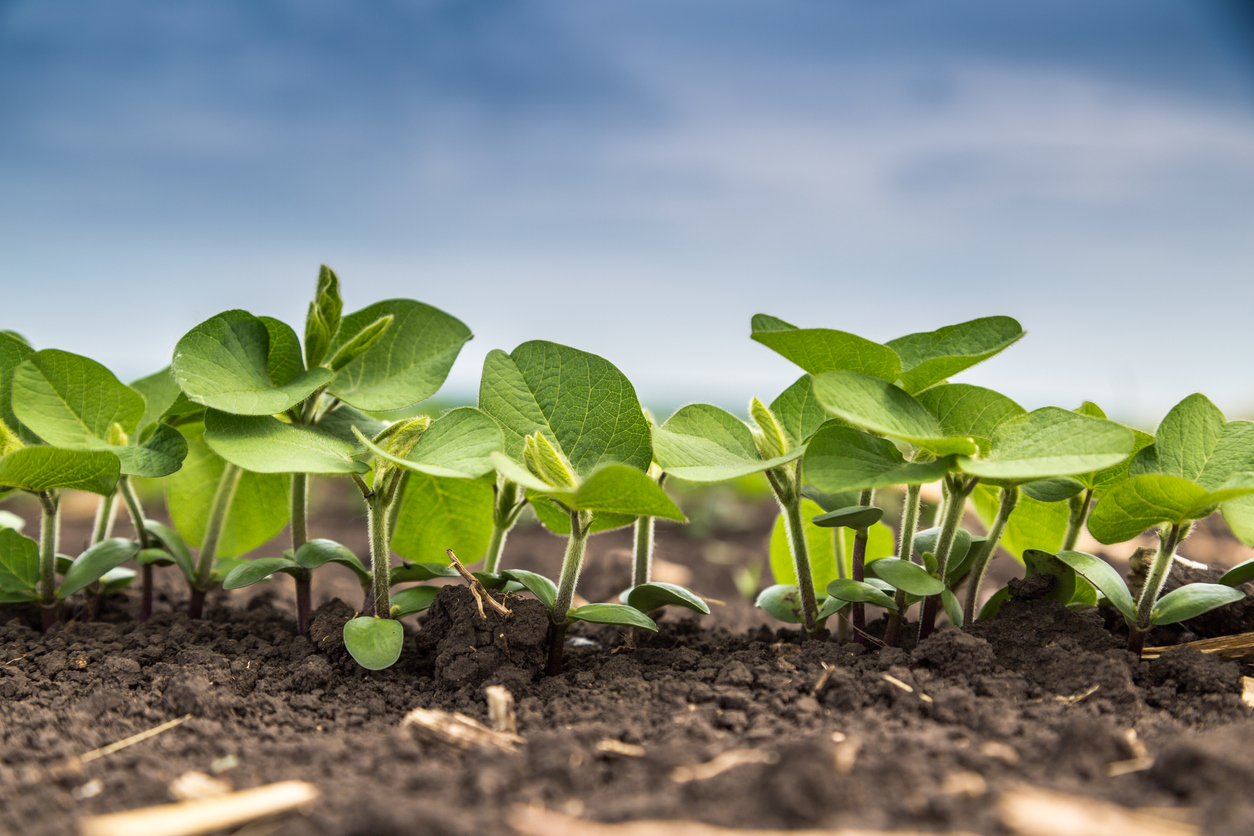
Scientists Assess Impact of Beta-carotene-enriched Soybeans on Soil Microorganisms
September 22, 2021| |
A group of researchers in the National Institute of Agricultural Sciences, Rural Development Administration and partners in Korea evaluated the effect of beta-carotene-enhanced soybean and hybrid soybeans on soil microbial communities. The results are published in Plant Biotechnology Reports.
One of the strategies in the environmental assessment of GM crops impact is to analyze their effects on microbial communities of the rhizosphere, which is the portion of the soil influenced by root secretions and soil microorganisms. To know the impact of GM and hybrid soybeans on the bacterial community of the rhizosphere, the research team used beta-carotene-enhanced transgenic soybean as the GM crop, modified from Kwangan soybean, and a hybrid soybean line in which this GM soybean line had been crossed with wild soybean.
Results showed that the bacterial community in the rhizospheres of GM and hybrid soybeans has no significant difference from that of conventional soybeans. The bacterial densities of the rhizospheres of GM and hybrid soybeans were within the range of the conventional soybeans. Further analysis also concluded that there is no horizontal gene transfer from the GM and hybrid soybeans to soil rhizosphere microorganisms.
Based on the findings, it was evident that GM and hybrid soybeans have an insignificant impact on soil microorganisms.
Read the research article in Plant Biotechnology Reports.
| |
You might also like:
- Biofortification of Beta-carotene in Cassava Enhances Provitamin A Content and Shelf Life
- Gene Editing Used to Develop Vitamin A-fortified Rice
- Impact of GM Crops on Soil Health
Biotech Updates is a weekly newsletter of ISAAA, a not-for-profit organization. It is distributed for free to over 22,000 subscribers worldwide to inform them about the key developments in biosciences, especially in biotechnology. Your support will help us in our mission to feed the world with knowledge. You can help by donating as little as $10.
-
See more articles:
-
News from Around the World
- Asian Regional Workshop on Current and Upcoming Items under the CBD and its Protocols
- Biotech Stakeholders Gather to Celebrate Africa Biotechnology Gains at ABBC2021
- Statements by Known Organizations Influence Consumer's Attitude about GMOs
- US Scientists Embark on Developing Edible Plant-based Vaccines
- Australian OGTR Approves Commercial Release of GM Canola
- Australian Researchers Discover Barley Powdery Mildew Resistance Genes
- John Innes Centre Research Group Identifies Microbial Molecule that Turns Plants into Zombies
- French Researchers and Experts Appeal to President Macron to Support Plant Biotechnologies
-
Research Highlights
- Scientists Assess Impact of Beta-carotene-enriched Soybeans on Soil Microorganisms
-
Plant
- CRISPR-dMac3-Cas9 System Used to Investigate Potato Tuber Starch Trait
- Researchers Identify Abiotic Stress Tolerance Genes for Editing in Upland Rice
- Japan Starts Sale of Genome-Edited High-GABA Tomato
-
Read the latest: - Biotech Updates (April 24, 2024)
- Gene Editing Supplement (April 24, 2024)
- Gene Drive Supplement (February 22, 2023)
-
Subscribe to BU: - Share
- Tweet

